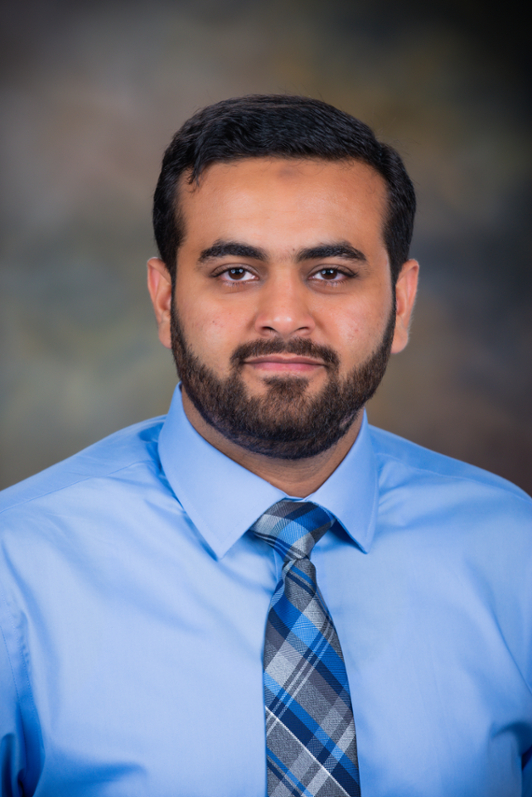RoboCrop: AI innovation wins big for biosystems engineering students at international farming robotics competition
Published: Feb 13, 2025 3:30 PM
By Jeremy Henderson
Farming is work — hard work. Just not as hard as it used to be.
Thanks to Florabot, an AI-driven robot developed by researchers in the Smart Systems Lab within the Department of Biosystems Engineering, farmers may soon be able to assess entire rows of azaleas, hydrangeas, petunias and many other ornamental plants in the time it takes you to read this article — and with the touch of a button.
"Helping growers monitor plant growth, manage inventory and save time and money — that's what we were trying to do," said Hamid Syed, a graduate research assistant in the Smart Systems Lab led by Tanzeel Rehman, assistant professor in biosystems engineering.
And, according to the judges at the premiere farming robotics convention in the world, they did it well.
Syed and fellow team members Faraz Ahmad, Mohtasim Hadi, Md Mesbahul Maruf and Carter Freeman took home the “Excellence in Productivity Award” at the Farm Robotics Challenge at FIRA - World Ag Robotics, an annual event organized by the University of California Agriculture and Natural Resources, the AI Institute for Next Generation Food Systems (AIFS), Western Growers and Farm-ng, with support from F3 Innovate.
The distinction also came with a $5,000 cash prize.
"This is the first time Auburn University has won an award in this worldwide competition, which aims to foster solutions to real-world agricultural challenges through cutting-edge robotics," Rehman said.
Real-world, indeed.
Florabot was developed with guidance from several of the state's ornamental nurseries, which team members used to feed the machine's algorithms with enough data for it to teach itself not just to determine which plants meet the designated criteria for shape, color, size and fullness, but even stress levels from pathogens and pests.
The resulting advanced image analysis pipeline utilizes a state-of-the-art segmentation algorithm and a custom deep-learning model to analyze 4K video, providing real-time plant counts and quality assessments directly impacting market potential. For a robot that navigates autonomously through real-world environments, that's easier said than done.
"There were certainly challenges in transforming our idea into a practical solution," Syed said. "For instance, the varying heights of plants required our product to be highly adaptable to accommodate a diverse range of species. By making specific adjustments both in the field and to Florabot itself, it can be adapted to provide significant ease and efficiency for nurseries and their workers."
In other words, Excellence in Productivity.
"Obviously, it felt great to be rewarded for our efforts," Syed said. "Winning the highest productivity award among our peers and universities definitely felt like a significant achievement."

From left to right: Biosystems engineering students Faraz Ahmad, Hamid Syed, Mohtasim Hadi Rafi, Carter Freeman, Md. Mesbahul Maruf pose with Florabot.


